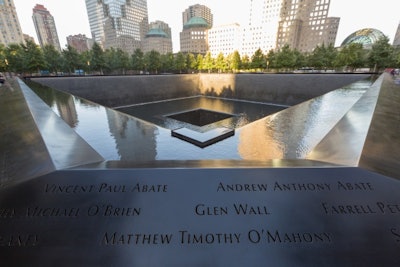Twenty-two years on, the memories don’t come quite as readily as they once did for Dr. Lynne Brown. But some aspects of 9/11 are indelible.
Brown, who was vice president of government relations and public affairs for New York University (NYU) on that day, climbed to the roof of Bobst Library when she heard that an airplane had hit the World Trade Center. She remembers the charred hole in the building, with smoke beginning to come out. She remembers the smell—acrid and rancid. And she remembers the sound that she heard as the towers collapsed—hundreds of people in a collective moan.
 The 9/11 Memorial in New York City
The 9/11 Memorial in New York City
“[9/11] is just this mystical thing I’ve always heard about,” said Evangelica Alcantara, a first-year student at Riverside City College who was born in 2001. “I don’t have very much connection to it.”
For Alcantara, the largest impact of 9/11 that she witnessed was the treatment of her best friend growing up, who was a Muslim.




















